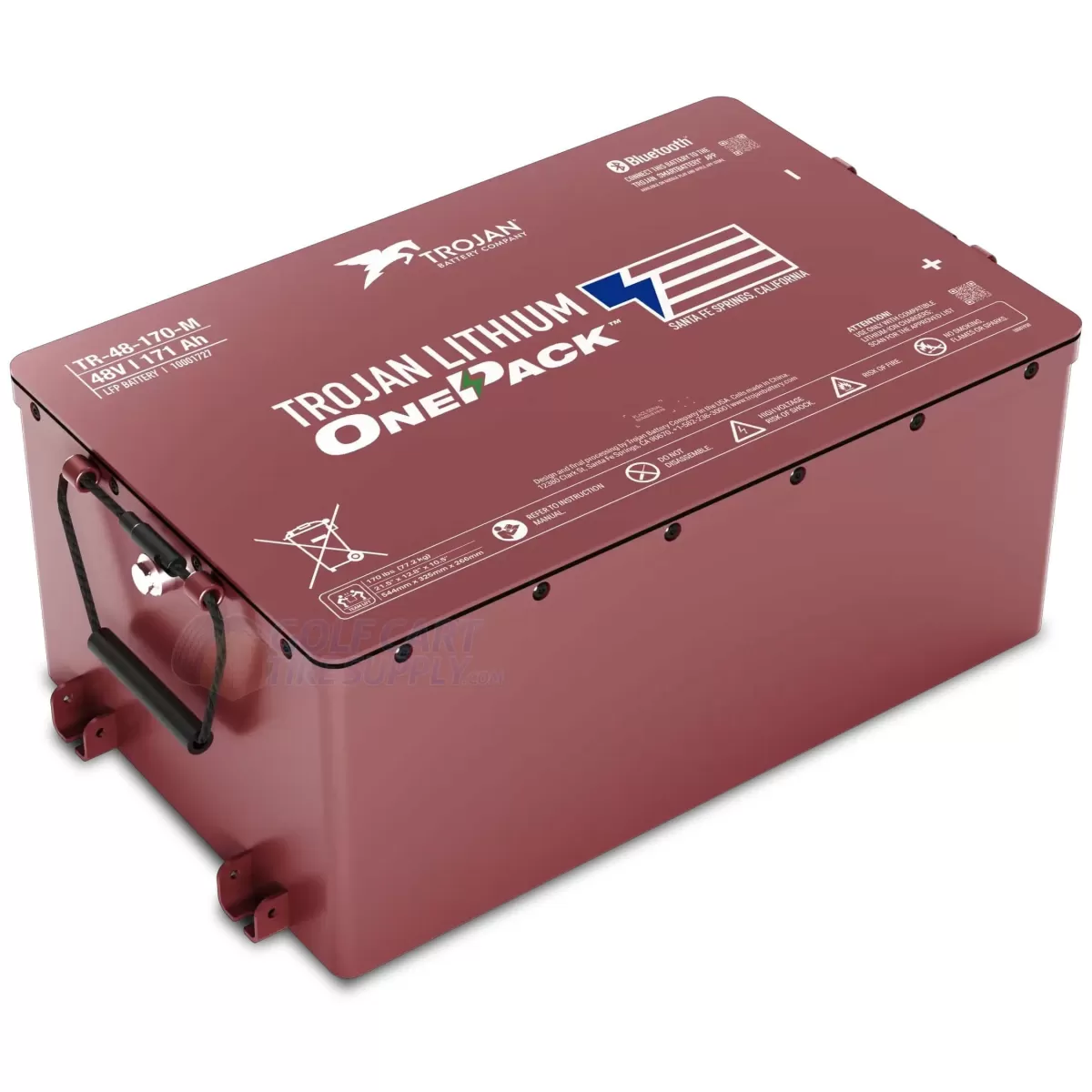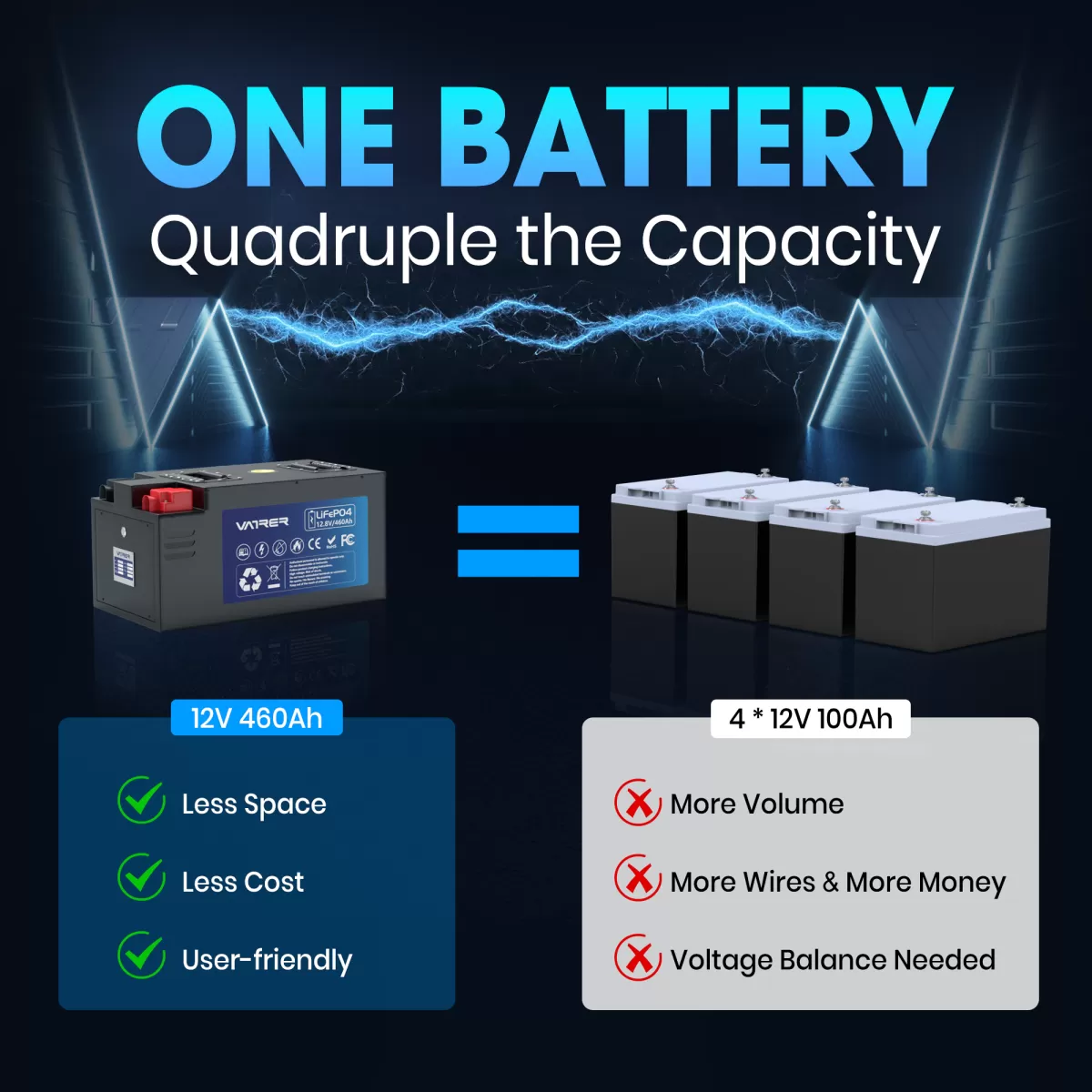Are Lithium Golf Cart Batteries Dangerous? Unpacking the Facts
You’ve likely heard the buzz about lithium golf cart batteries—their power, efficiency, and long lifespan are game-changers for golfers and cart owners alike. But a nagging question remains: Are lithium golf cart batteries dangerous? Safety concerns, like fire risks and thermal runaway, can make anyone hesitant. At Li-ess, we get it—your peace of mind is as important as your cart’s performance. That’s why we’re here to cut through the myths, deliver the safety facts, and share expert tips based on real-world experience. Ready to explore the truth about golf cart battery safety and why Li-ess is the trusted choice? Let’s roll!
Understanding Lithium Golf Cart Batteries
What Are Lithium Golf Cart Batteries
Lithium golf cart batteries are rechargeable batteries designed specifically for powering golf carts. Unlike traditional lead-acid batteries, these use lithium-ion technology—often LiFePO4 (lithium iron phosphate)—which offers higher energy density, lighter weight, and longer life. They store energy more efficiently, making your golf cart run longer and perform better.
Why Golf Cart Owners Are Switching to Lithium
More and more golf cart owners are choosing lithium batteries because they provide clear benefits:
- Longer lifespan—Lithium batteries can last 3-4 times longer than lead-acid ones.
- Lighter weight—This makes carts easier to handle and improves speed and efficiency.
- Faster charging—You spend less time waiting and more time on the course.
- Low maintenance—No need to top off water or clean terminals regularly.
- Environmentally friendly—They contain fewer toxic materials and are more energy-efficient.
Common Myths About Lithium Battery Safety
Many people worry that lithium batteries are dangerous or prone to catching fire. While lithium batteries do contain chemicals that must be handled carefully, modern lithium golf cart batteries come with advanced safety features to prevent accidents. Not all lithium batteries are the same—LiFePO4 chemistry used in golf carts is much safer than the lithium-ion batteries in phones or laptops. Some myths include:
- They will explode easily—This is extremely rare with proper battery management systems (BMS).
- They overheat quickly—New technology keeps temperatures stable during use and charging.
- They are too expensive—Though the upfront cost is higher, the long-term savings and performance usually justify the investment.
Understanding these points helps golf cart owners feel confident about making the switch to lithium batteries with a clear picture of both benefits and safety.
Are Lithium Golf Cart Batteries Dangerous Assessing the Risks

When it comes to lithium golf cart battery safety, many people worry about potential dangers like fires or explosions. So, are lithium golf cart batteries dangerous? Let’s break down the real risks to help you understand.
Potential Risks of Lithium Batteries
Lithium batteries, including the popular LiFePO4 type used in golf carts, can experience issues like thermal runaway—a chain reaction causing overheating and fire. This often happens if the battery is damaged, overcharged, or exposed to extreme temperatures. Other risks include short circuits and improper handling.
Real-World Incidents
While incidents involving lithium golf cart batteries making headlines exist, they remain rare. Most modern lithium batteries come with built-in safety systems that drastically reduce these risks. Compared to early lithium tech, today’s batteries are far safer thanks to better design and quality control.
How Risks Compare to Lead-Acid Batteries
The truth is, lead-acid batteries—the traditional type in golf carts—also come with safety concerns like acid leaks, corrosion, and risk of fire from hydrogen gas emissions. Compared side-by-side, lithium batteries, especially LiFePO4 chemistry, tend to offer a safer experience with less maintenance and fewer hazardous materials.
In , lithium golf cart batteries are not inherently dangerous when handled and maintained properly. Understanding the risks helps you take the right precautions so your golf cart stays safe and reliable.
Safety Features of Modern Lithium Golf Cart Batteries
Modern lithium golf cart batteries come with several safety features that make them much safer than older types. One of the most important is the Built-In Battery Management System (BMS). This system constantly monitors the battery’s health, temperature, voltage, and current. It protects against overcharging, overheating, and short circuits, which are common causes of battery problems.
Another key safety advantage lies in the LiFePO4 chemistry used in many lithium golf cart batteries. Lithium Iron Phosphate (LiFePO4) batteries are known for their stability and lower risk of thermal runaway compared to other lithium chemistries. They’re much less likely to catch fire or explode, making them a safer choice for golf carts.
On top of that, many quality lithium golf cart batteries include extra safety mechanisms like:
- Thermal fuses that cut power if the battery gets too hot
- Pressure release valves to prevent build-up inside the battery
- Robust casing to protect against physical damage and impacts
All these safety features combined mean that lithium golf cart batteries offer reliable performance while keeping fire risks and other safety concerns to a minimum. If you’re shopping for the best lithium batteries for golf carts, look for models that highlight these protections.
How to Ensure Safe Use of Lithium Golf Cart Batteries
Using lithium golf cart batteries safely starts with choosing high-quality batteries from reputable brands. Avoid cheap, no-name options that might cut corners on safety features. Brands with good reviews and proper certifications are usually more reliable and built to last.
Next, practice proper charging habits. Always use the charger designed for your lithium battery, and avoid overcharging. Lithium batteries perform best when charged in a cool, dry place and monitored during the charging process. Avoid leaving your battery plugged in for days on end.
Temperature management is crucial. Lithium batteries can be sensitive to extreme heat or cold, which impacts performance and safety. Store your golf cart battery indoors or in shaded, temperature-controlled spaces whenever possible, especially during hot summers or freezing winters common in many US regions.
Finally, professional installation and regular maintenance are key. Have a trusted technician install your battery to ensure all safety protocols are followed, including secure mounting and proper wiring. Schedule regular check-ups to assess battery health and detect any early signs of wear or damage.
By following these steps—choose quality, charge smart, manage temperature, and get professional help—you’ll keep your lithium golf cart batteries safe and performing well for years.
Environmental and Cost Considerations
Are Lithium Batteries Worth the Investment
Switching to lithium golf cart batteries usually means spending more upfront compared to traditional lead-acid batteries. But in the long run, lithium batteries often pay for themselves. They last much longer—sometimes 3 to 5 times more cycles—so you save money replacing batteries less often. Plus, they weigh less, which can improve your golf cart’s performance and reduce strain on the vehicle over time.
If you use your golf cart regularly, that longer life and better efficiency make lithium a smart investment. For occasional users, the cost might seem high, but the benefits still add up in convenience, charging speed, and consistent power output.
Environmental Impact
Lithium batteries are generally more eco-friendly than lead-acid batteries. They hold energy better, meaning less wasted power, and they last longer, which cuts down on battery waste. Most modern lithium batteries, especially LiFePO4 types, contain less toxic material and are easier to recycle, reducing their environmental footprint.
In comparison, lead-acid batteries use heavy metals that can harm the environment if not disposed of properly. So, choosing lithium isn’t just a performance upgrade—it’s a greener choice too.
Key Takeaways
- Lithium batteries cost more upfront but save money over time with longer life and better efficiency
- They reduce waste due to longer lifespan and better recyclability
- Lithium golf cart batteries have a smaller environmental footprint than lead-acid options
For U.S. golf cart owners, investing in lithium means getting a dependable power source while also taking a step toward a cleaner, more sustainable future.
Local Considerations for Golf Cart Owners
Regional Climate Impacts
Where you live in the U.S. plays a big role in how your lithium golf cart batteries perform and how long they last. Extreme heat, like in Arizona or Texas, can cause lithium batteries to overheat if not managed well. On the other hand, cold climates, such as in Minnesota or Maine, might slow down battery efficiency and reduce range temporarily. Using a battery with good temperature management or storing your golf cart in a climate-controlled area can help protect your investment.
Finding Trusted Local Suppliers
When it comes to buying lithium golf cart batteries, working with local, reputable suppliers is key. Local dealers understand regional conditions and can recommend the right battery options tailored to your area’s climate. Plus, having a supplier nearby makes it easier to get professional installation, maintenance, and support — which is crucial for long battery life and safety. Look for suppliers who offer warranties, good customer service, and have solid reviews from other golf cart owners in your region.
By paying attention to your local environment and choosing trusted sellers, you can enjoy the full benefits of lithium golf cart batteries without surprises.
FAQs
Are lithium golf cart batteries dangerous
Lithium golf cart batteries are generally safe when used properly. Modern lithium batteries, especially LiFePO4 types, have built-in safety features that reduce fire risks compared to older battery types.
How do lithium batteries compare to lead-acid batteries in safety
Lithium batteries have a lower chance of leaking acid or suffering from corrosion. They also handle temperature changes better and include battery management systems to prevent issues like overcharging or overheating.
Can lithium batteries catch fire
While any battery has some fire risk, incidents with lithium golf cart batteries are rare. Most fire risks come from poor quality batteries, improper charging, or damage. That’s why it’s important to buy from trusted brands and follow safe charging practices.
What safety features do lithium golf cart batteries have
Most come with a Battery Management System (BMS) that monitors voltage, temperature, and current. LiFePO4 chemistry is also inherently more stable and less prone to thermal runaway than other lithium types.
How can I keep my lithium golf cart battery safe
Always use the charger recommended by the manufacturer
Avoid extreme temperatures when charging or storing
Get professional installation and routine maintenance
Buy from reputable brands with good warranty and reviews
Are lithium batteries better for the environment
Yes, lithium batteries last longer and are more efficient than lead-acid batteries. They also have less toxic materials, making disposal and recycling easier.
Is it expensive to switch to lithium batteries
The upfront cost is higher, but you save money in the long run due to longer battery life, lower maintenance, and better performance.
If you’re in the U.S., make sure to check with local suppliers about climate considerations and support. Proper care and choosing the right battery are key to safe and long-lasting use.











Add comment